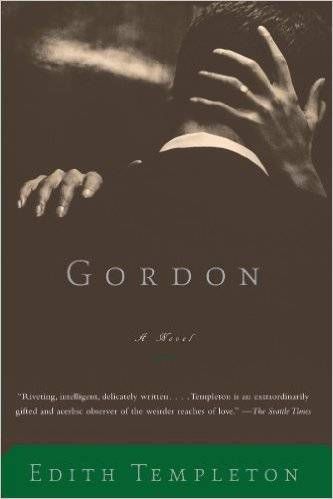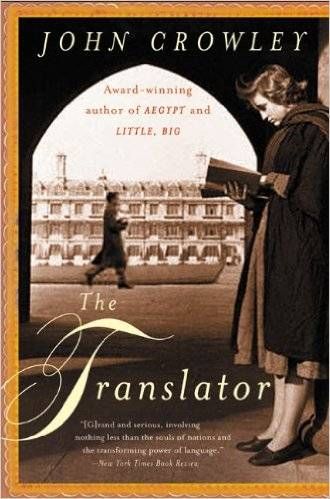
No One Wants To Read A “Healthy” Love Story
I am vehemently anti-Fifty Shades of Grey. From my perspective, Christian Grey is a bully whose approaches to sex reek of relationship abuse, and Ana’s Inner Goddess is a broken Id that pushes her toward outer victimhood. A story with overtones of rape warrants reader pushback, and for every swoon Grey’s way, I’m ready to interject “that’s not the kind of romantic hero we should lust for at all”.
And yet this week I found myself poised to defend Fifty Shades and its readership, on grounds I usually avoid: it’s just a book. I doubt that many of its readers, whether they are turned on our appalled by it, are actually expecting to find a C. Grey of their own. And, ultimately, even the criticisms I’ve forwarded are part of what make it provocative reading. When we’re reading about love or sex: provocation works. No one wants to read a boring love story.
A book request comes to my librarian’s desk that runs against Grey: can you recommend a love story that’s wholly healthy? I cannot. The love stories I love most, upon reflection, are anything but.
For the sake of the argument, here’s how I’m defining “healthy”: strife-free. A partnership. Chores trade hands in equal measure, partners have their fights but settle them without manipulation or violence, no one is abusing anyone, they are concerned with one another’s well-being. The kind of relationship that you’d actually want to be in–that makes your life fuller, that leaves you feeling fulfilled. (In my construction: life with a he-feminist.)
Try to sell the relationship I just described to a literary agent, though. I dare you. It’s not going to fly. You’d need to add an alien takeover or the revelation of an affair or something to the mix.
In life, for love, you look for something a little beautifully mundane; a novel requires more tension. Even popular love stories that are outwardly based on mutuality and respect–I’m thinking of N. Sparks, which I’m loath to admit–get their steam from the really unhealthy events that surround them: tragic separation, disease, war, rodeo injuries. Flash floods. Ghosts.
The classics, too, are marked by conflict: prejudicial misunderstanding and pride, a wild wife in the attic, class differences, emergence from the fatal loins of eternal foes. Sure, we swoon over the love part, but the discord propels the story, not the hands that meet, igniting sparks.
Definitionally, what is romantic is also a little bit f***ed up.
The love stories I can recommend to readers are therefore not “healthy” ones. When I do fall in love with a love story, it’s the obstacles that get me: the challenges I’d never want in my own life, the messiness, the will-they-can-they-won’t-they of the tale. And, spoiler alert: they usually can’t. Or if they can, can’t do it wholly easily, or without negative implications for others. There’s pain in the greats, and with it poignancy; simultaneously, there’s nothing that ought to be treated as a blueprint.

I hate, hate, hate that “inner goddess” language and triple-dipping tea bags made it to the bestseller list, but if I’m recommending Edith Templeton’s Gordon in your place, Grey, I must not actually think that your readers are going to let C. Grey’s cruelty bleed over into their own love lives. I’m going to grit my teeth and say it: I understand the appeal. You aren’t my style. I get why you’re so huge, though.
That unpleasant business aside, here’s some great love writing that I wholly recommend:
She thought, long after, that she had not then ever explored a lover’s body, learned its folds and articulations, muscle under skin, bone under muscle, but that this was really most like that: this slow probing and working in his language, taking it in or taking hold of it; his words, his life, in her heart, in her mouth too. Daylong she listened to her teachers and the air force boys and the mechanical voices in the language lab use the same language and she would feel the secret knowledge of what she did with him, with it, in the nights: she alone.
–John Crowley, The Translator
This book. This writing. Crowley’s novel is set in the period of the Cuban Missile Crisis–conflict, and of an indomitable nature!–and focuses on Christa Malone, a sharp young student with a complicated past, and the exiled Russian poet whose work she helps to translate. You’ve got: May-December issues. Professor-student hurdles. Looming differences in nationality with tremendous timely implications.
It’s forbidden. It’s transgressive. The intimacy throughout, even where it doesn’t become physical, is powerfully, sexily written.
But there’s not a lot about it that’s healthy. If you tried to reform it as a healthy love story, it’d lose a lot of its power. Sanitized, what do you have?: a story about a girl who goes to class and admires a mysterious professor. That’s it. Zip. Done.
That’s pretty boring.
So long as we are able to distinguish between intriguing tales and good relationship advice: “healthy” may stay in the kitchen. There’s still nothing wrong with some schmaltz and grit and artery-clogging goodness in a love story; we may even prefer one in which our protagonists die young.
Novels about love are just not a place where we can convincingly pretend that bland works.



 She thought, long after, that she had not then ever explored a lover’s body, learned its folds and articulations, muscle under skin, bone under muscle, but that this was really most like that: this slow probing and working in his language, taking it in or taking hold of it; his words, his life, in her heart, in her mouth too. Daylong she listened to her teachers and the air force boys and the mechanical voices in the language lab use the same language and she would feel the secret knowledge of what she did with him, with it, in the nights: she alone.
She thought, long after, that she had not then ever explored a lover’s body, learned its folds and articulations, muscle under skin, bone under muscle, but that this was really most like that: this slow probing and working in his language, taking it in or taking hold of it; his words, his life, in her heart, in her mouth too. Daylong she listened to her teachers and the air force boys and the mechanical voices in the language lab use the same language and she would feel the secret knowledge of what she did with him, with it, in the nights: she alone. 




